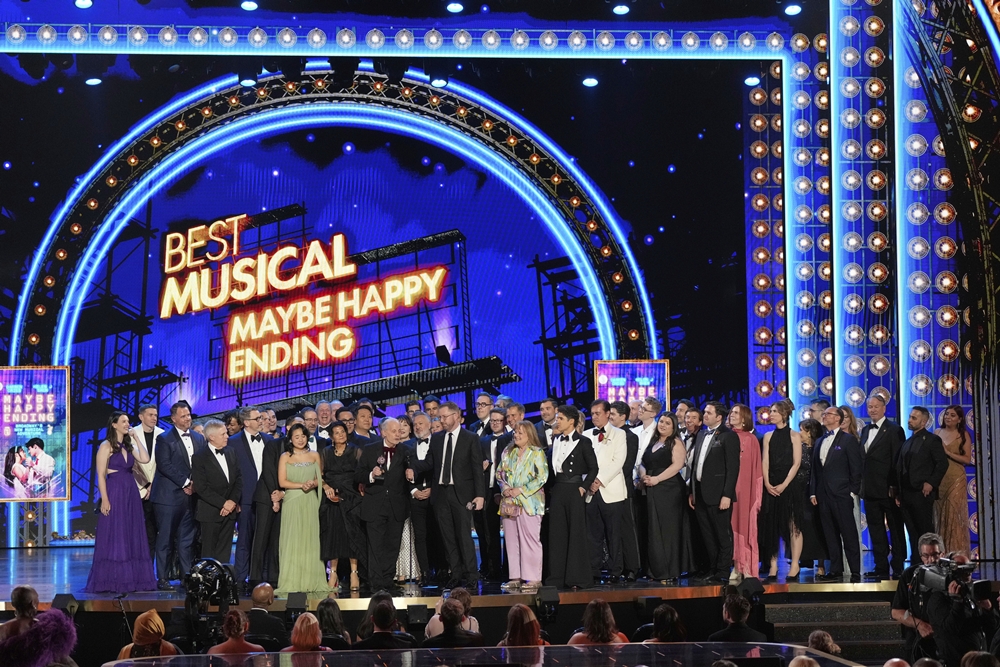
The production staff and cast of the original Korean musical "Maybe Happy Ending" on June 8 assemble on stage after winning Best Musical among their six Tony Awards of the U.S. at the event's preshow held at Radio City Hall in New York. (Yonhap News)
By Charles Audouin
The New York Times on June 21 ran the feature headlined "How South Korea Became a Cultural Powerhouse, and What's Next," analyzing the strength of Hallyu (Korean Wave).
The story explained how Korean culture grew popular worldwide, saying Hallyu began in the late 1990s in China and Japan. It also introduced filmmaker Park Chan-wook winning the top prize at the 2004 Cannes Film Festival for "Old Boy," "Gangnam Style" by rapper Psy hitting 10 billion views on YouTube in 2012 and K-pop phenom BTS, which greatly raised K-pop's global status during the COVID-19 pandemic.
"The so-called Korean Wave shows no signs of subsiding," the Times added, mentioning the reunion of all seven BTS members after they completed their mandatory military service, the world tour of girl group BLACKPINK starting next month and the final season of the smash Netflix series "Squid Game" to premiere on June 27.
The Times said the number of Hallyu fans worldwide who want to imitate their K-pop and K-drama idols in Korean cosmetics, food and the language is surging. Quoting a music critic in Seoul, it said Hallyu (Korean Wave) is now deeply entrenched as a lifestyle, not entertainment.
Thanks to this explosive interest, exports of Korean cosmetics jumped 21% last year, ranking the country third globally in such shipments after the U.S. and France. After videos of gimbap (seaweed rice rolls) went viral, grocery stores in America ran out of ingredients for the food, plus demand for ramyeon (instant noodles) took off.
The number of tourists, expats and exchange students in Korea also grew as some of them "are inspired by the life that its dramas and popular culture icons depicted on social media," the Times added.
But the jury remains out over if the country is considered a cultural power. The article quoted experts as saying it is still too early to tell if Hallyu has peaked or has lasting influence.
caudouin@korea.kr
Most popular
- Military discharge sets stage for reunion of all 7 BTS members
- 'We are back!' BTS Festa heralds hyped return of K-pop phenom
- K-pop streaming on Spotify skyrockets 470-fold in 10 years
- Hallyu gala MyK Festa from June 19 to feature K-pop acts
- President Lee starts G7 schedule via talks with S. Africa, Australia
